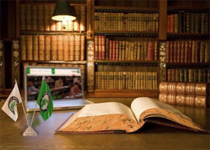Universities and Enhancing Political Awareness

Introduction:
Universities play a significant role in enhancing the political awareness of students, highlighting the importance of universities in this area through several aspects. Universities are considered the ideal place to elevate efficiency, participate in public affairs, and increase political awareness, enabling students to reach a high level of creativity, responsibility, and awareness. Universities have historically been the engines of progress towards knowledge and democracy. Within the confines of universities, political and reformative movements have grown, and the human mind has unleashed its creative energies in various fields and directions. Here, students find themselves driven towards public affairs, supported by an environment conducive to engaging and interacting with public work.
With the transformations, knowledge and technological revolutions, globalization, and increasing demands for democracy in societies today, coupled with the conflicts and disturbances in the Arab region, the importance of the university’s role in carrying public issues, especially in developing political awareness and contributing to the political socialization of students, becomes more significant.
Historical Role of Universities:
The University of al-Qarawiyyin in Fez, Morocco, is considered the first university institution in the world, founded in 859 AD by Fatima al-Fihri, a descendant of the noble follower Uqba ibn Nafi al-Fihri, the conqueror of Tunisia and founder of the city of Kairouan. In the Western world, the term ‘university’ was derived from the Latin term ‘universitas magistrorum et scholarium’, which means “a community of teachers and scholars”. This term was first used at the University of Bologna in Italy, founded in 1088, marking it as the first university in Europe and the world.
Universities have often been centers of political activity leading to changes in government policies. In the United States, universities were centers of political activity during the 1960s and 1970s, witnessing student movements like the civil rights movement and protests against the Vietnam War. For example, after weeks of protests against the Vietnam War and pervasive racism in American society at the time, students at Columbia University decided to escalate their protests, resulting in their control of five university buildings and a sustained sit-in, which was forcibly dispersed, resulting in dozens of injuries and arrests. These movements led to significant changes in government policies, including the passage of civil rights laws and the end of the Vietnam War.
In 1964, the spark of student activism ignited at the University of California, Berkeley, when the university rejected any political activity on campus, leading to a wave of protests, notably at Jackson State University in Mississippi, where police fired on students, killing two. Subsequently, four million students across the country protested, with one of the largest events taking place in Washington D.C., involving about 100,000 students. Many universities closed their doors in response to the protests and unrest, unable to control them.
At Harvard University, thousands of students organized a campaign to cancel the Reserve Officers’ Training Corps, which was indeed successful in reducing the training pace by 40% by the end of 1970, contributing to America’s retreat from the war. As the brutality of the American war in Vietnam increased, young men eligible for the draft began to protest against military service, with thousands fleeing to Canada or Sweden to avoid the risks of conscription, resulting in strained relations between Washington and those countries.
Columbia University returned to the forefront in another issue, the fight against apartheid in South Africa. On April 5, 1985, seven students, members of the “Coalition for a Free South Africa,” locked the entrance to the university’s administrative building, Hamilton Hall, one of the five buildings that had witnessed Vietnam War protest events. They chained themselves at the entrance and on the stairs leading to it. This escalation continued and grew over about three weeks until victory came for the movement and the students on April 25, 1985, when Columbia University’s administration finally decided to listen to its students’ demands and completely cease dealings with the apartheid regime in South Africa on all academic and other levels.
The “Coalition for a Free South Africa” was founded in 1982 and succeeded in convincing the Columbia University Student Senate of the justice of their demands, leading the council to vote in favor of these demands and actively participate in demonstrations aimed at pressuring the university administration until the goals were ultimately achieved.
In France, universities were the focal point of the student movement in 1968, which led to significant political and social changes, including the resignation of President Charles de Gaulle and major changes in French government policies, as in many Western countries.
Thus, universities are considered key institutions for enhancing democracy and political participation. For instance, in Scandinavian countries, universities are main centers for research and education on democracy and good governance, playing a significant role in shaping government policies in these areas. Universities also play a role in adopting social issues such as social justice, equality, diversity, and sustainability.
It can be said that universities have often been
centers of political activity leading to changes in government policies. This is due to some university courses in the West concerned with contemporary international issues and problems that threaten international peace and security under the new international order. These courses help students understand contemporary political issues and develop their skills in political participation. Some political studies in Western universities address issues of structural politicization in political processes, helping students understand contemporary political issues and develop their skills in political participation. Some university courses in the West address contemporary political issues such as international security and peace issues, the problem of external debt of developing countries, and the issue of the contemporary technological revolution and its impact on the balance of power system. Thus, these courses are the greatest aid to students in understanding contemporary political issues and developing their skills in political participation.
Universities have played an important role in supporting the Palestinian cause through a variety of activities and initiatives, such as offering academic programs and research focused on the Palestinian issue, highlighting the challenges and issues associated with it, and hosting seminars and lectures addressing the Palestinian issue, providing an opportunity for students, faculty members, and the general public to learn about contemporary issues related to the Palestinian cause. Many student groups in Western universities are involved in organizing events, demonstrations, and awareness campaigns, especially today following the events of the war in Gaza. It is worth noting that the role played by Western universities may vary based on the political and social context of each university.
Historical and Struggle Role of Universities in Syria:
The original nucleus of the Syrian University emerged during the Ottoman era in 1903 in the form of a medical office in Damascus, followed by the opening of a law school in Beirut in 1913 during the French Mandate. The medical office and law school underwent multiple cycles of cancellation and retention. Initially, the institution was placed under the supervision of a French president, assisted by a Syrian president, until the establishment of the Syrian University on June 15, 1923, which then retained its Arab character in terms of its administration and course. In 1923, local donations were also collected to establish the Syrian University, adding the faculties of Arts and Sciences to the existing institutes of Medicine and Law from the Ottoman era. However, unlike Saint Joseph University in Beirut, which was linked to the University of Lyon in France, the Syrian University was not linked to a French university during the French Mandate, although it received support from the French authorities through the issuance of regulations between 1923 and 1929 regarding the establishment of the university, its institutes, systems, and the adoption of the baccalaureate certificate for entry, providing the Syrian University with the administrative and organizational infrastructure as a recognized scientific institution under the Ministry of Education with its independent budget and Syrian president.
A cadre of Syrian professors and some French contractors were secured to work at the university, and students were sent to specialize in France. Dr. “Abdul Karim Rafiq” mentions in his book “The Syrian University: The Beginning and Growth” that the French educational policy in private schools, whether missionary or secular, was first directed towards the children of minorities from various social strata, and secondly towards the children of the majority from the middle and bourgeois classes, while the children of the majority mostly attended only public schools.
Then, in the 1980s and 1990s, security control over scientific institutions in Syria intensified, leading to the arrest of many university students based on their opinions and opposition party affiliations. They remained in prisons for long years without trial, and some were prevented from completing their postgraduate studies after being released due to the deprivation of their civil rights. The situation did not change much after the “opening” that accompanied the beginning of Bashar al-Assad’s era, who inherited the presidency from his father, Hafez al-Assad, after his death in 2000. The university admissions criteria based on ideological and security standards during the father’s era became based on class criteria during the son’s era, with the university and its teachers and students under continuous security and party surveillance.
The results of this long security history became glaringly evident after the outbreak of the Syrian Revolution, with peaceful demonstrations emerging in public and private universities, particularly the Universities of Damascus and Aleppo, where the majority of faculties and departments were transformed into centers for detention and torture. The “National Union of Syrian Students” became the primary center for gathering, arming, funding, and preparing Shabiha to suppress demonstrations, torture students, and even kill them if necessary.
In response to the notorious role of the Ba’athist organization known as the “National Union of Syrian Students,” Syrian students formed the “Free Syrian Students Union” to coordinate civil student activities in demonstrating and sit-ins and to sponsor various civil activities such as distributing flyers, writing banners, issuing statements, and documenting (what could be documented) of crimes committed by the Syrian security forces against students, tracking the names of those punished and expelled from their universities, and creating web pages and social media sites to announce detainees and monitor their detention locations and conditions.
The new union’s
branch in Damascus managed to document the names of 74 students who were expelled from Damascus University or denied the continuation of their studies by an official decision from the university presidency. Additionally, 97 martyrs were documented by name, surname, and date of birth, along with five martyrs killed under torture, according to activists in the Free Students Union.
At Aleppo University, which activists dubbed “University of the Revolution” due to its very distinguished activity since the beginning of the Syrian Revolution, the first demonstrations emerged in the Faculty of Arts on April 14, 2011. On May 3, 2012, after the number of protesting students exceeded five thousand, security forces stormed the university, firing live ammunition, killing four students, injuring 28 others, and arresting over 200 students and setting several residential units on fire in retaliation. Hundreds of university students were expelled from university residences, some of which were transformed into military barracks and havens for Shabiha, and others were used as areas for launching shells and missiles at neighborhoods opposing the Syrian regime. The university was then temporarily closed by a decision from its president, and on January 15, 2013, coinciding with the first day of university exams, Syrian warplanes bombed the Faculty of Architectural Engineering, resulting in a horrific massacre that claimed the lives of 82 students, according to the Free Syrian Students Union.
As a result, the repercussions of higher education problems have reflected on the scientific standing of Syrian universities globally. According to the global university ranking (Webometrics), the ranking of Syrian universities has dropped by 4,000 positions compared to the ranking in January 2018. The Higher Institute of Applied Science and Technology in Damascus ranked first in Syria and 4,817th globally, only dropping three positions from the previous ranking. Damascus University ranked second in Syria and 8,481st globally, dropping 3,955 positions, while the Syrian Virtual University ranked fourth in Syria and 10,109th globally, dropping 1,445 positions. Al-Baath University in Homs ranked fifth in Syria and 11,764th globally, dropping 4,629 positions, and Tishreen University ranked sixth in Syria and 12,092nd globally, recording the highest drop by 6,736 positions. The International University for Science and Technology ranked seventh in Syria and advanced 2,598 positions from the previous ranking to 12,990th globally. Aleppo University ranked eighth in Syria and 13,332nd globally, advancing 1,300 positions. In ninth place, Al-Qalamoun Private University achieved a global ranking of 13,561, dropping 1,045 positions. The Arab International University (AIU) ranked tenth in Syria and 14,181st globally, dropping 2,376 positions.
A report by the BBC website shows that the higher education system in Syria has been destroyed, according to researchers at Cambridge University and Syrian academics, documenting about 2,000 specialized academics who have left the country as refugees abroad.
2015 marked the beginning of the opening of universities in the liberated northern Syrian regions despite the security and economic difficulties experienced by these areas. To date, there are dozens of universities in the northern Syrian regions, including: Al-Maali Private University, Al-Zahra University (Jarablus), Anatolia Academy for Health and Administrative Sciences, Basaksehir Academy (Al-Bab), Mary University (Hazano – Idlib), Al-Hayat University for Medical Sciences (Aqrabat Idlib), International University for Science and Renaissance (A’zaz Aleppo), North Private University (Sarmada- Idlib), Gaziantep University, International Sham University (A’zaz- Aleppo), Free Aleppo University (A’zaz), and Idlib University, along with multiple colleges and institutes. Additionally, in the autonomous administration areas, Afrin University was established in 2015, and Rojava University in Qamishli in 2016, each comprising several faculties and departments such as Engineering, Informatics, Psychology, Education, History, and Kurdish Literature, with teaching in the three languages of the region: Kurdish, Arabic, and Syriac, to accommodate all components of the region.
At this stage in Syria, there was no clear and significant support for activists and political movements from universities or their students. For example, no statements were issued by any union in the areas controlled by “HTS,” nor did Idlib University or the Students Union in Idlib regarding the current demonstrations in Idlib! According to a report studying this case, it concluded that students in the northern Syrian universities – Idlib – are divided into several segments:
- Indifferent segment: 60%.
- Segment of students with political and social thought: 25%.
- Segment of students affiliated with Hay’at Tahrir al-Sham, accounting for 15%.
The report, which conducted a survey, shows that a quarter of the students hold a political horizon and discuss events,
issues, and the reality of power, unanimously supporting the Syrian Revolution and its goals.
Conclusion:
In a previous article by the Scientific Office of the Syrian Future Movement titled “Damascus University: A Great History and Painful Reality,” we concluded the necessity of distancing education from politicization, removing the hands of security agencies from it, and the need to manage the file of universities and research centers academically and scientifically, with increased spending on scientific research, the need to preserve Syrian competencies and minds, and providing the appropriate environment for their return, along with developing the law regulating universities and granting them financial and administrative independence, appreciating professors, and adopting clear criteria and standards for their promotion, based on objectivity and competence, with attention to changing the current political system in Syria to achieve all mentioned. In the event of the Syrian regime’s stubbornness to accept any political solution, we in the Syrian Future Movement recommended officially placing the file of Damascus University under the custody of the Arab League or the United Nations, considering the authenticity of “Damascus University” and its role as a major national link for Syrians with their country and nation despite all their political differences and disputes.
We add two recommendations to everything mentioned:
The first, raising political awareness to support university students’ involvement in public affairs, and creating an internal national incentive for them through imposing moral and national responsibility in case of their indifference, considering that university students are the lever for any civilizational renaissance in any country.
The second, working to make universities play a leading role at the general and specifically political level, by opening the doors of universities to political, intellectual, and cultural pluralism through various seminars and lectures related to public affairs, pushing and protecting students from the consequences of any active participation, with emphasis on universities as a guiding factor for individual behavior through civilized and peaceful expression.
Finally, we in the Syrian Future Movement are open to supporting this renaissance project for universities, and we place our headquarters inside Syria at the service of university students without any guardianship or political exploitation, believing in our civil role in enhancing the role of university work in Syria.
Jacqueline K. Al-Shami
Scientific Office
Research and Studies Department
Studies
Syrian Future Movement (SFM)
References:
Dr. Abdul Karim Rafiq, History of the Syrian University, The Beginning and Growth, 1901-1946, 2004, Nobel Library, Damascus.
Role of Palestinian Universities in Enhancing Political Awareness “For Palestinian Students of 48”, Ahoud Al-Shoubaki, An-Najah National University, 2018.
de Ridder-Symoens, Hilde: A History of the Universities in Europe, Volume One: Universities in the Middle Ages, Cambridge University Press, 1992.
Syrian Economy Management during the French Mandate (1918-1946) – Its Post-Independence Effects – Chapter Three – The Mandate Society – Presses de l’Ifpo (openedition.org)
The Reality of University Education and Its Role in Rebuilding Modern






